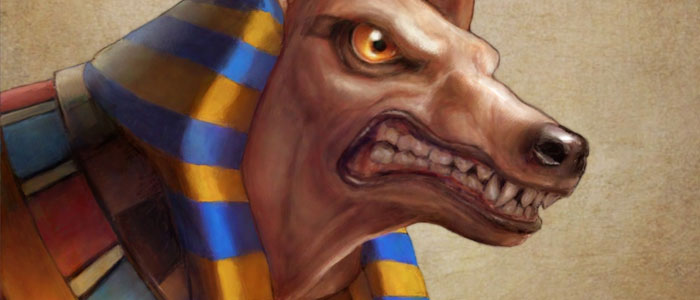The follow-up to 2006’s Age of Empires: Age of Kings, Mythologies joins the growing library of turn-based strategy titles for the DS. New developer Griptonite Games delivers a title tailor-made for the gamer who needs a smattering of classical voodoo with their Advance Wars style tactical gaming.
There are three different cultures under the player’s control: Greek, Egyptian and Norse. The dynamic aspect of Mythologies lies in the varied units available under each culture, like legendary creatures, deities and heroes. Because the three cultures play very differently from one another the gameplay, while similar to the last iteration, feels far more deep. The game’s economy and “aging up” concept are incorporated again so that technology and units advance over time. This gives the diligent researcher the opportunity to far outstrip the opposition by aging up to the point of being years ahead. Pleasantly diverse, the strategy extends to learning and understanding the primary cultures, research, managing food, gold, buildings and even relics for additional boosts (like regeneration and attack strength).
With so much hinging on the addition of the special units, understanding and utilizing their power is key. Gods, when prayed to, trigger special attacks, and the myth units include sphinx and scarabs while the hero units are strongest against those myth units. This balance system means that it takes more than heroes for victory, however, as a unit’s strength compares differently to others. Furthermore, the addition of the god power system allows for the heroes to build obelisks to deities, and based on the chosen deity certain abilities can be researched and used. The abilities range from weather events like blizzards to a good old-fashioned locust swarm. The god power system also means research for better gear, increasing tech levels and improved god abilities. Research has its costs (god points, cash and food) and cannot be completed in one fell swoop so determining where your resources go deepens the strategy and adds variety.
Controls are stylus or D-pad with the units moving on a grid map making for a nice, clean use of the DS controls. Each turn allows a unit one movement and one attack, with the latter being guided by an advisor that determines the likelihood of your victory against the enemy unit. This sacrifices some tension but is perhaps more realistic as far as war efforts go, and of course eliminates the likely event of reloading your game after a round of combat goals foul. In larger scale battles, though, you will end up forced to see things through to the bitter end even when victory has already been determined, which can make the otherwise fresh title feel repetitious.
In-game graphics are a little bland for my tastes, but the models are easily distinguishable and an improvement from Age of Kings. The satisfying tactical gameplay is successful enough to compensate, but it is still nice to see a good battle animation – one that reminds me less of a bad Saturday morning cartoon. The interface is not very friendly for the uninitiate and seems to take a lot for granted, which is not something gameplay can balance. Simple presentation is tried and true, and that doesn’t make it a bad thing.
Multi-player includes online, wireless and a hot seat where you pass the DS among friends. A few maps are playable even if your friend doesn’t have the game, which is great. AI can join in multi-player matches and any of the heroes, gods, relics and maps are at your disposal in a match. There are over forty unlockables available from gameplay as well as the store and include twelve maps, three heroes, eighteen relics and nine gods. Items are unlocked with the myth point system, and points can be won in both single and multi-player via the 33 achievements. These achievements range from beating the single player campaigns as each culture to completing a tutorial and function nicely within the game.
A lot of things just plain work in this title, while elements – like the addition of god powers – are a bit too nuanced to pack any real punch. In all, Mythologies follows the tried-and-true tactical formula of collecting resources to develop tech and increase units and then go fight some battles. With gameplay to rival Advance Wars, Mythologies lacks the graphical oomph to set it apart from the pack but remains a robust strategy title. A solid, deep game it gets a lot of things right and is such an improvement over its predecessor it is an ideal pick for gamers looking to try the series – and a must have for gamers disillusioned with the last iteration’s meager graphical effort.
